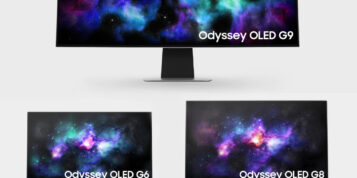In a recent Washington Post op-ed, Eric Schatzberg, author of Technology: Critical History of a Concept, made the argument that technology has been stripped of its human essence. He cites Steve Jobs, who famously said that ‘technology alone is not enough’. To create a better world, he added, we need to focus on people, as well as the technology.
He’s right, and with the recent release of Black Mirror’s fifth season, we’re reminded of what happens (or what could happen) when tech is divorced from the people who build it and use it, and when its goal—to make our lives better—is neglected or forgotten. It makes a good story: who didn’t find the episode in which people function as human batteries, powering their surroundings and earning ‘merits’, unsettling?
In the real world, we tend to focus on the negative, too. When we talk about tech we almost always end up discussing the ‘Big Tech’ companies of Silicon Valley, who are frequently criticised for their perceived failure to respect user privacy and data. We talk about dysfunctional algorithms, targeted adverts, and more.
But having a human being behind the wheel is not just about mitigating damage. Most of the time, it’s about using technology to achieve productive ends and deliver better results—for the user, the customer or the client. Exciting new technologies such as machine-learning and artificial intelligence are means to improve the experience of people, but other people are needed both to guarantee that outcome and—maybe more important—to make the ultimate decision as to how valuable those technologies are.
Think of the response to Pokémon Go. Within a month of its release in July 2016, it had broken five world records. But by December in the same year, the number of active daily users had fallen from 45 million to 5 million—not a small number, but a steep drop. In the intervening months, brands and agencies had enthusiastically looked for ways to incorporate augmented reality (AR) into the campaigns. But with the decline in interest in Pokémon Go, the appetite for AR declined as well, at least for the time being.
It was a classic case of ‘tech for tech’s sake’. Using AR to appear to be forward-thinking or different in some way was never going to work. Someone needed to ask the question: ‘will this help us to improve engagement, communicate in a more authentic way, or provide meaningful interaction?’ If they had, they may have concluded ‘no, not yet’—but let’s explore the technology so we’re ready to go when it is.
In the marketing space, the developments in digital tech we’ve seen in recent years have been fantastic. The way it has allowed us to provide better-quality work to those who depend on us is unquestionable. It isn’t a substitute for knowing people, knowing demographics and being able to interpret data ourselves, however. And that’s true of just about every sector.
Without a doubt, recent developments in technology have changed the world for the better. But that doesn’t emancipate us from our responsibility to understand our own lives, our businesses, our customers or our industries. And we should remember, too, that new technology isn’t better, or useful, just because it’s new.





